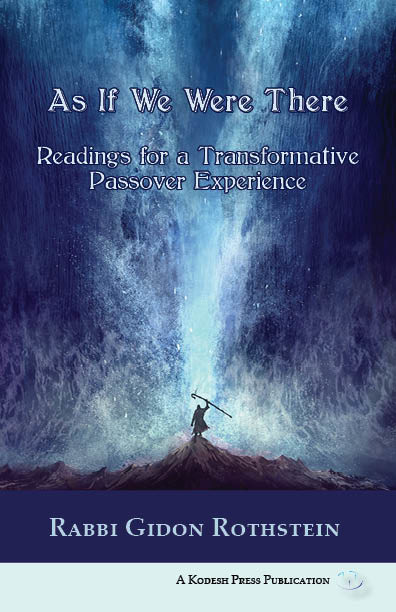Readings selected for a meaningful Pesach
The Pesach Seder may be the most observed family ritual on the Jewish calendar. Accordingly, many books deal with Pesach observances. For the next three weeks, this column will be devoted to essays dealing with some of the finest new works themed to Pesach and the Exodus experience.
For starters this week’s choice is “As If We Were There” (Kodesh Press, 2016) by Rabbi Dr. Gidon Rothstein, whose “Blogging R. Lichtenstein” can be found at one of the most distinguished websites, Gil Student’s Torahmusings.com.
This heartfelt work is a reflection of the rabbi’s learned background as reflected in some of the following sentiments that he recently shared with me:
“I grew up in environments that stressed the importance of being fully committed to the Torah, its practice, and values as well as being involved with taking from, and contributing to, all that was good and positive in the not-specifically Jewish world.
My father was educated at Yeshiva Chaim Berlin and Brooklyn College. He eventually became a lawyer.
“My teachers were all men who embodied a similarly balanced life, such as Rabbi Dr. Aharon Lichtenstein, zt”l, Prof. Isadore Twersky, zt”l, and yb”l, Rabbi Dr. Haym Soloveitchik. I received my MPA at Columbia, smicha and a master’s in Jewish History at Yeshiva and a Ph.D in Jewish History at Harvard.”
Regarding the Pesach experience, he shares the following: “Another piece of personal background is reflected in just how impactful my father’s Seder was to me and, I think, all his children. It was a night when he shone, particularly in terms of conveying to children of all ages the need to engage and to make the story of the exodus experience as reflected in the Haggadah text relevant as one’s own.
“As I approach Pesach each year, I think of ways to do that for myself, my family, and — when I have an audience — those who come to my shi’urim. That was what led me, one year, to offer a series of lectures on the first chapters of Shemot, a sense that we tell the Exodus story on Seder night without, for many of us, knowing that story all that well.

 46.0°,
Light Drizzle
46.0°,
Light Drizzle 







